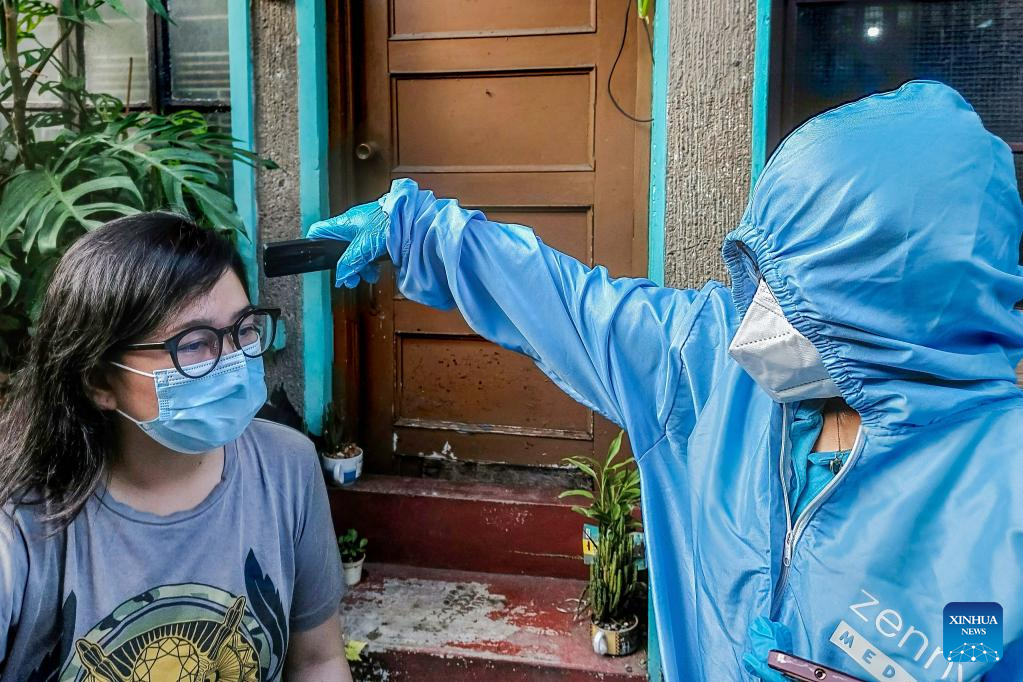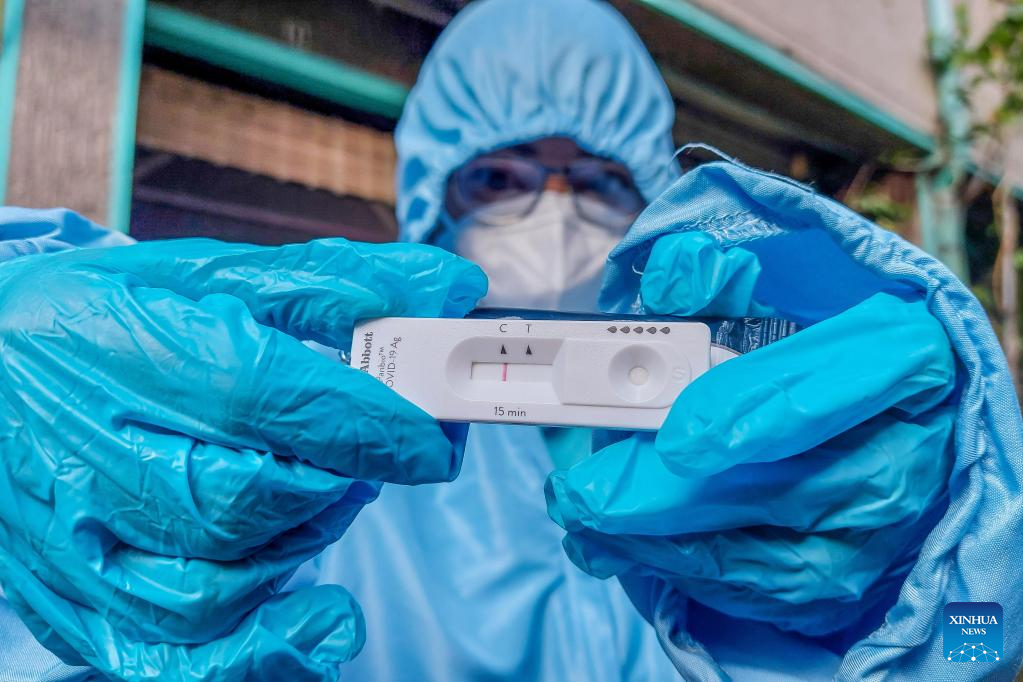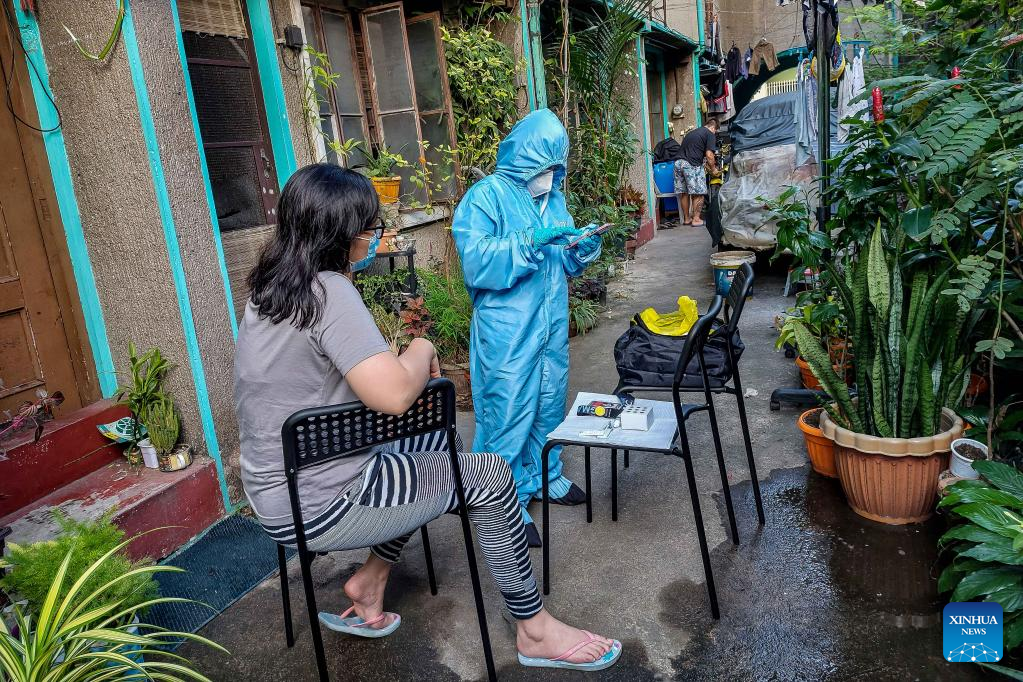
A medical worker conducts an at-home COVID-19 antigen test in Quezon City, the Philippines, on Jan. 10, 2022. The Philippines reported 33,169 new COVID-19 infections on Monday, a new record daily spike, pushing the number of confirmed cases in the Southeast Asian country to 2,998,530. (Xinhua/Rouelle Umali)
MANILA, Jan. 10 (Xinhua) -- The Philippines reported 33,169 new COVID-19 infections on Monday, a new record daily spike, pushing the number of confirmed cases in the Southeast Asian country to 2,998,530.
The Department of Health (DOH) said the positivity rate continued rising to a record 46 percent, 145 more people died from COVID-19 complications, bringing the country's death toll to 52,293, with 10 laboratories failing to submit data.
Since Saturday, the Philippines' COVID-19 infections have surged to record levels, with officials blaming high mobility and poor compliance with safety health protocols during the holiday season when Filipinos traveled to their hometowns, held parties, and visited malls with families and friends, despite the threat of the highly transmissible Omicron and Delta variants.
Vince Dizon, the deputy chief implementer of the government's response against COVID-19, said the demand for COVID-19 tests surged, straining the country's laboratories.
At a virtual press conference, Dizon said that COVID-19 testing laboratories are experiencing a staffing shortage because many of its medical and laboratory technicians have contracted the virus and needed isolation, delaying the turnaround time of test results.
"That is the biggest challenge we are facing now. The situation is the same in hospitals; more nurses and doctors are also getting sick," Dizon added.
To avert a shortage of hospital staff, the government shortened the quarantine period for asymptomatic and fully-vaccinated frontline medical workers.
The surges in communities, especially in Metro Manila and nearby areas, are further straining the hospitals' capacity to cope with the rising COVID-19 patients.
Authorities imposed hard lockdowns in several areas with virus clusters in the capital region, home to over 13 million people. Police have set up checkpoints in Metro Manila's peripheries and only allow fully vaccinated travelers to enter the capital.
The Philippines, which has around 110 million population, has tested more than 24 million people since the outbreak in 2020. ■

A medical worker shows a negative COVID-19 antigen test result during an at-home COVID-19 antigen testing in Quezon City, the Philippines on Jan. 10, 2022. The Philippines reported 33,169 new COVID-19 infections on Monday, a new record daily spike, pushing the number of confirmed cases in the Southeast Asian country to 2,998,530. (Xinhua/Rouelle Umali)

A medical worker conducts an at-home COVID-19 antigen test in Quezon City, the Philippines, on Jan. 10, 2022. The Philippines reported 33,169 new COVID-19 infections on Monday, a new record daily spike, pushing the number of confirmed cases in the Southeast Asian country to 2,998,530. (Xinhua/Rouelle Umali)



